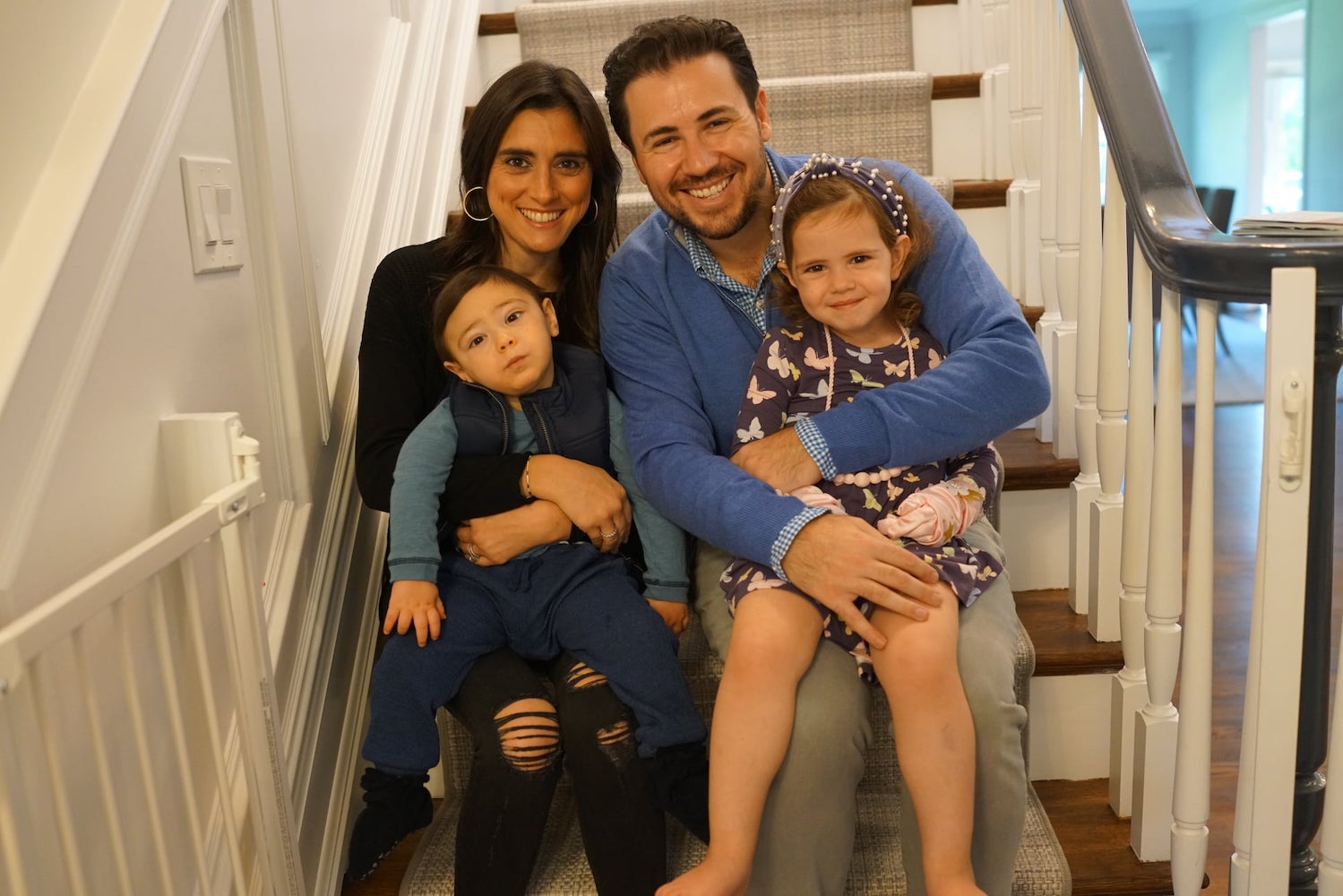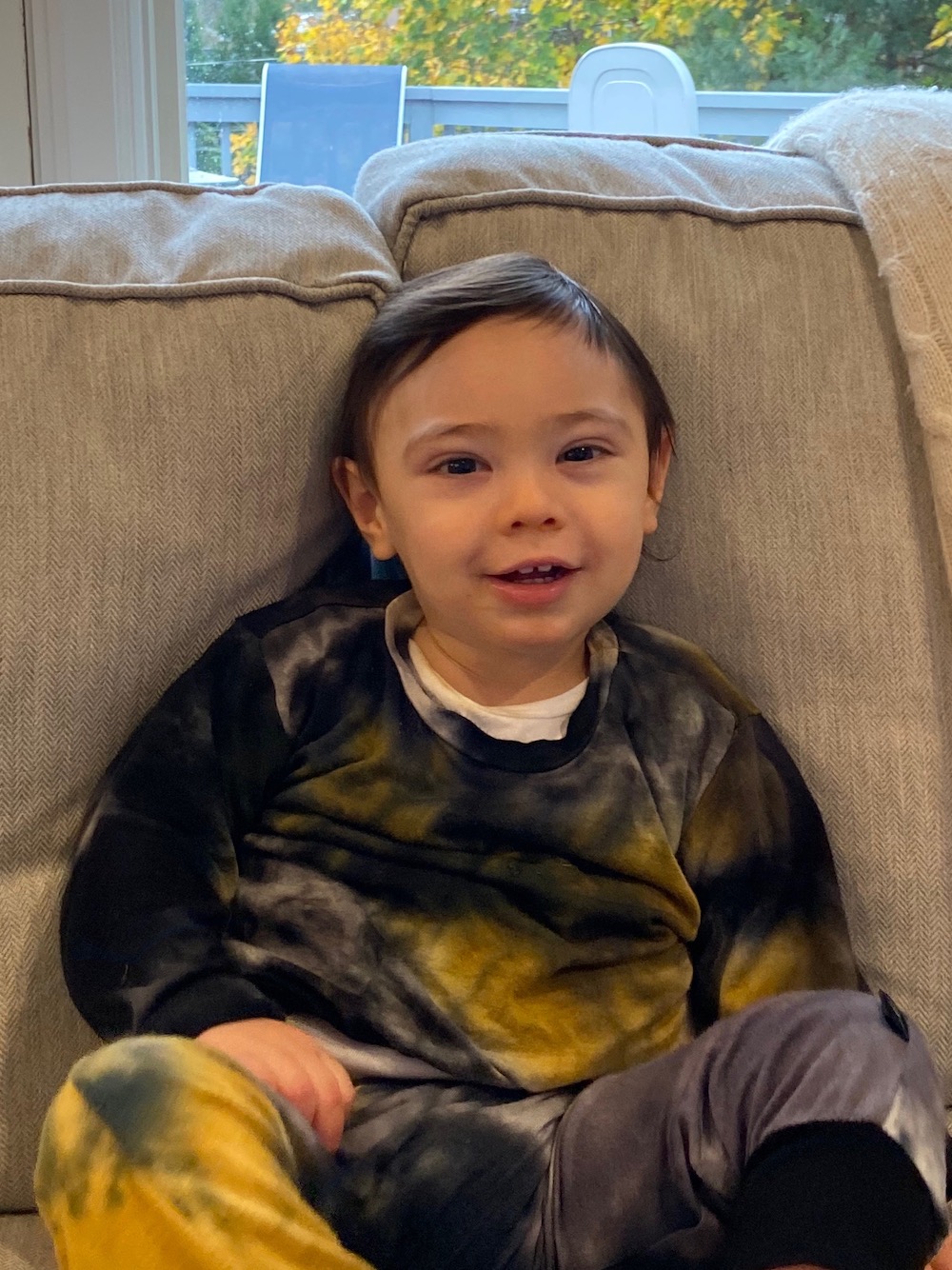
There, I said it: I hate my kid's birthday.
Last month, my son, Eli, turned 2. My family and I should have been happy to celebrate this occasion. But we are devastated.
Eli was born with FOXG1 syndrome, a rare brain disorder causing severe cognitive impairment that has upended our lives in every way imaginable. He is not expected to walk, talk, feed himself, or do anything independently. A wheelchair-bound life of dangerous seizures, medical appointments, and therapies awaits.
I'm ashamed to say that before Eli's diagnosis, I knew little about rare diseases beyond the fact they existed and affected "other people," not me. I don't use the word ashamed lightly. I had no idea how many rare diseases there are, or how much suffering goes on, or the limited hope that attaches to most of these diagnoses because their rarity makes them commercially unappealing for big pharma to pursue.
Yet this is exactly where my wife, Ilissa, and I found ourselves in 2019 when we sat in a doctor's office and had our world turned upside down—feeling helpless and alone. Worse, we felt hopeless. Like most of the other 7,000-plus known rare diseases, no cure or treatment is available.
We chose to convert our grief into action by forming Believe in a Cure, a non-profit organization where we're working with leading scientists to fix the FOXG1 protein deficiency Eli and some few hundred others worldwide suffer from.
While there is truly hope for a better future due to incredible advances in science, hope does not fill the searing voids in our lives that are most evident on what should be happy occasions. Hope does not take away the tears or the heartbreak or the loss of leisure. Hope does not remove the agony families like ours endure every day, running from one doctor's office to another, managing therapy appointments, rushing to the hospital when dangerous seizures emerge, adjusting medications to reduce distress, avoiding circumstances and settings that we know will be emotionally painful, or merely seeking to survive the night—literally.
This occasion, Eli's birthday, was supposed to be a special time in his life and that of our family as we mark signs of progress.
But time is our enemy. With each passing day, Eli falls further behind. With each passing moment, a future treatment may be a little less effective. So, at once, time marches forward, and it also stands still as we mourn the loss of missed celebrations, milestones not achieved, dreams and aspirations slipping from our grasp. This is why I hate his birthday.

We yearn to hear what Eli's voice sounds like. We dream of him running outside chasing his sister, or getting excited to enjoy an ice cream cone, or even crying because he actually understands why he's upset.
We cannot escape the harshness of the cards we've been dealt, but neither can we be fully defined by them. There is space in our hearts to live with hope alongside pain. Neither can fully eradicate the other, and in fact, neither can exist without the other. One must be hopeful to get through pain. In turn, pain reminds us that hope alone is not enough to eliminate suffering. If we do not adopt this outlook, we endure the fate of Robert Frost's "Hired Man"—"nothing to look backward to with pride, and nothing to look forward to with hope."
If anything, I've learned that the coexistence of hope and despair is not static. In some moments, we even have the power to tip the seesaw, however marginally, toward hope. We do so when we embrace our vulnerability and open ourselves up to the love and warmth of others. We do so when we allow the power of community to help us do that which we cannot do alone. Isn't such recognition part of this mystery we call the human condition?
If you're reading this as a fellow rare disease warrior, know that you are not alone. Our stories may be different, but we undoubtedly know a small piece of each other's pain. There is strength in that.
And if you're fortunate to be reading this from any other perspective, know that you have the power to lift others up through your words and deeds. Know that you can be in the arena with us, and small gestures of kindness and compassion—the extra text message, a recognition of painful situations, a focus on inclusivity, the surprise cookie drop-off—can go a long way in reminding people they are not alone.
So, I hate my kid's birthday precisely because of how much I love him, and how much I ache for a future that is so much better than today.
Someday, Eli, you'll read this and smile, knowing that we never gave up hope.
Scott D. Reich is co-founder of Believe in a Cure, Inc., a non-profit organization seeking to cure FOXG1 Syndrome. Watch his family's story here.





